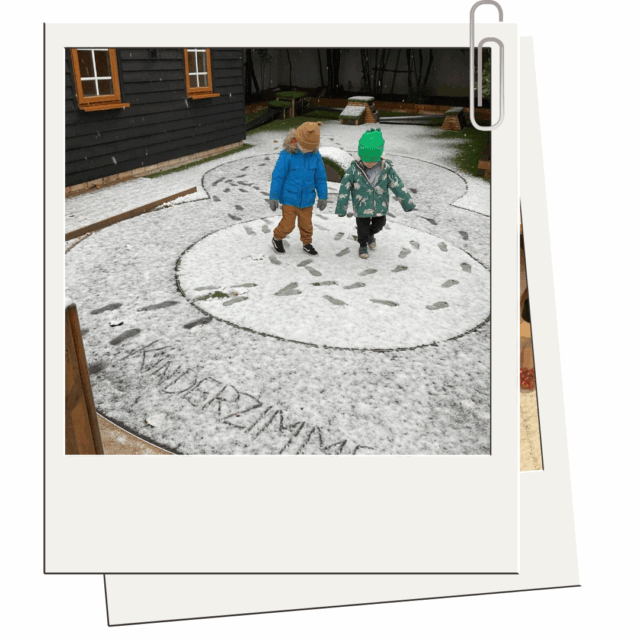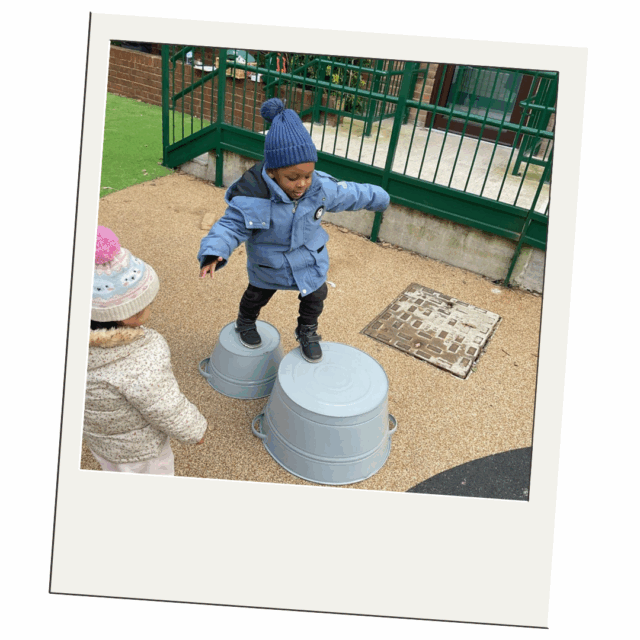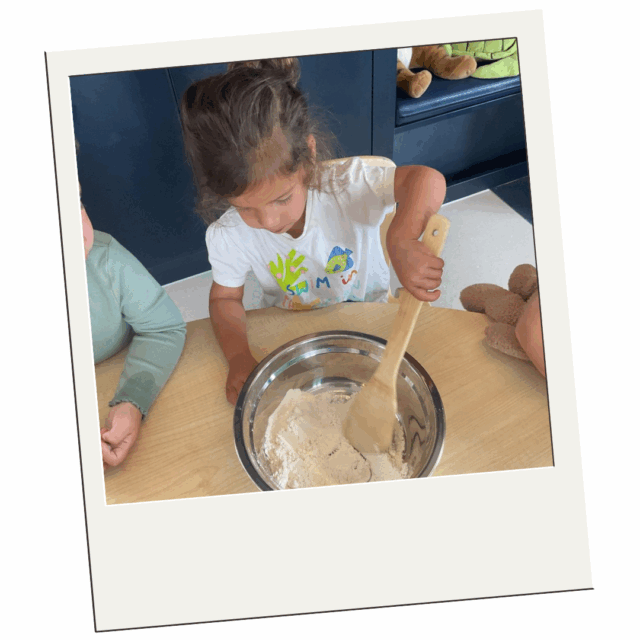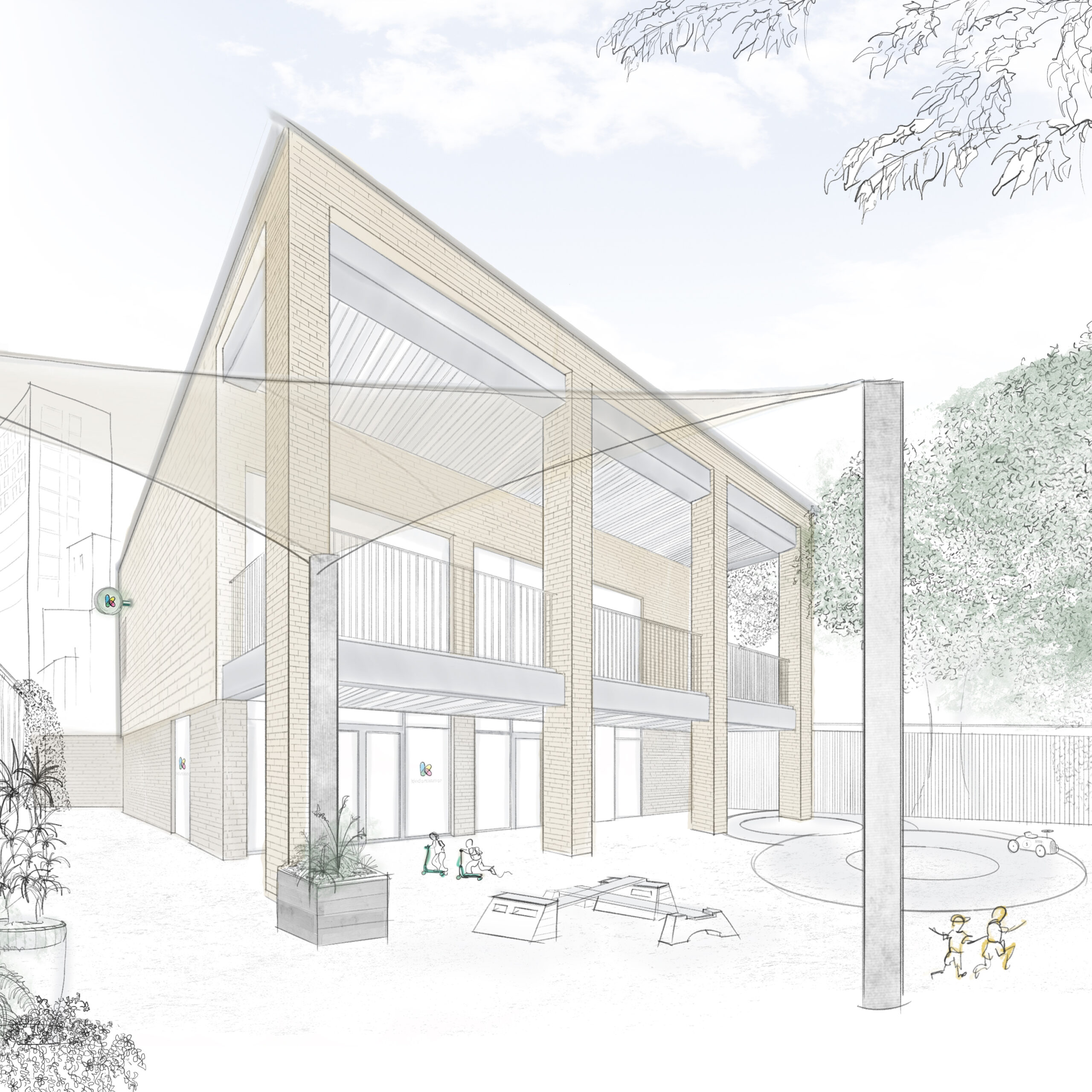Winter Wellness for Children: Keeping Children Healthy, Active, and Engaged
13/10/25 Knowledge Base ParentingWinter Wellness for Children: Keeping Children Healthy, Active, and Engaged
Winter can be a challenging season for parents. Shorter days, colder temperatures, and wet weather often leave families wondering how to keep little ones healthy, active, and engaged. At kinderzimmer, we see winter as a wonderful opportunity to teach resilience, curiosity, and self-care. Across our nurseries, from Muswell Hill and Berkhamsted to Walton-on-Thames, South Kensington, Chelmsford, Sunbury-on-Thames, White City, Walthamstow, and Amersham, children spend at least two hours outdoors every day, rain or shine.
This daily outdoor activity supports the EYFS framework, promoting physical development, personal, social, and emotional growth, and understanding the world. Winter offers unique experiences: frost on leaves, the sounds of winter birds, puddle-jumping after rain, and observing seasonal changes. Beyond physical benefits, these activities foster problem-solving skills, resilience, and a sense of adventure.
In this blog, we will explore practical strategies for keeping children well during winter, including nutrition, outdoor play, emotional wellbeing, parent-friendly tips, and ways to replicate kinderzimmer’s winter approach at home.

1. Boosting Immunity Through Seasonal Nutrition
Nutrition is the foundation of winter wellness. At kinderzimmer, we follow a seasonal meal plan designed to provide children with a variety of nutrient-rich foods that support growth, immunity, and cognitive development.
Key strategies include:
-
Colourful plates: Winter fruits like oranges, kiwis, and berries provide vitamin C, while leafy greens such as kale and spinach supply iron and antioxidants.
-
Seasonal vegetables: Root vegetables like carrots, parsnips, and squash offer energy, fibre, and important micronutrients. Children learn about seasonal eating and where food comes from, supporting Understanding the World in EYFS.
-
Healthy fats: Avocado, olive oil, and nut butters (age-appropriate) support brain development.
-
Hydration: Children often forget to drink when it’s cold. Warm water, diluted fruit juices, or caffeine-free herbal teas help maintain hydration levels. See our blog here on how much water children really need.
At-home tips for parents:
-
Serve colourful, balanced meals to make nutrition fun.
-
Get children involved in meal prep: washing vegetables, stirring soup, or arranging plates.
-
Introduce tasting games for new vegetables to encourage adventurous eating.
2. Dressing for Outdoor Play
Winter outdoor play is crucial, but children must be warm and comfortable. kinderzimmer encourages layering, waterproof clothing, and sturdy footwear, ensuring children can explore confidently.
Practical tips:
-
Base layer: cotton or breathable fabric to wick moisture.
-
Middle layer: fleece or jumper for insulation.
-
Outer layer: waterproof jacket and trousers.
-
Accessories: hat, gloves, scarf, and spare socks.
Children enjoy our gardens and adventure walks in every nursery, from Walton-on-Thames to Walthamstow. Activities such as puddle-jumping, exploring natural textures, and observing wildlife encourage gross motor development, coordination, and resilience.
At-home ideas:
-
Create a “grab-and-go” basket with hats, gloves, and spare socks to encourage spontaneous outdoor adventures.
-
Turn short walks into scavenger hunts, e.g., “Find three different leaves” or “Spot a bird’s nest.”

3. Seasonal Activities for Body and Mind
kinderzimmer integrates learning and play into all winter activities. Children explore nature, move their bodies, and engage their minds through playful experiences.
Examples of winter activities:
-
Nature hunts: Collect pinecones, twigs, leaves, and other natural items for sensory play and craft projects.
-
Creative crafts: Use collected items for printing, clay, or play-dough textures.
-
Indoor movement: Yoga, obstacle courses, or dance sessions help maintain flexibility and strength.
-
Mindfulness walks: Children focus on the sounds, sights, and smells of winter, supporting concentration and calmness.
-
Cooking activities: Simple soups, bread-making, or fruit salads help children develop fine motor skills, learn sequences, and explore science concepts.
At-home replication:
-
Freeze leaves in ice for sensory play.
-
Bake simple recipes together, counting and measuring ingredients.
-
Encourage children to describe what they see and hear outdoors to boost language development.
4. Supporting Emotional Wellbeing
Winter can affect children emotionally due to shorter, darker days. kinderzimmer provides cosy corners and low-light areas for quiet reflection, allowing children to regulate emotions independently. Consistent routines and seasonal celebrations help children feel secure.
Nursery strategies:
-
Label emotions and model coping strategies: “I can see you’re frustrated. Let’s take a deep breath together.”
-
Maintain predictable daily routines for meals, outdoor play, and naps.
-
Celebrate seasonal events like winter festivals, storytelling, or arts and crafts days.
Parent tips:
-
Establish consistent home routines, especially around meals and bedtime.
-
Encourage expression through drawing, storytelling, or role play.
-
Use nursery drop-off rituals like a special handshake or wave to ease separation anxiety. See our tips here!
Parent Tips & At-Home Activities
-
Daily outdoor time: Even 10–15 minutes of fresh air can boost vitamin D and mood.
-
Family cooking projects: Soups, stews, or baked goods enhance motor skills and language.
-
Sensory exploration: Ice, snow, or natural textures offer safe indoor or outdoor sensory experiences.
-
Mindfulness practices: Short breathing exercises or “listen and describe” games cultivate focus and calmness.
-
Storytelling: Read winter-themed books together to expand vocabulary and comprehension.

Winter Wellness Tips for Children
Winter doesn’t have to mean staying indoors. At kinderzimmer, children learn to embrace the season, combining health, outdoor play, and emotional wellbeing with EYFS-aligned learning. Families can replicate these strategies at home to create meaningful experiences even on the coldest, darkest days.
Discover how your child can thrive in every season. Book a visit to your nearest kinderzimmer nursery and see winter wellness in action!












